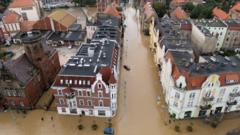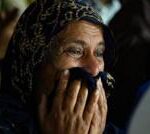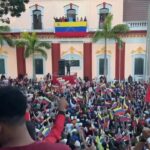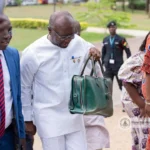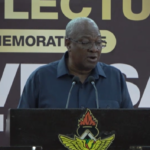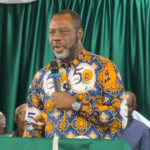BEIRUT (AP) — Hamas leader Ismail Haniyeh was killed by an airstrike in the Iranian capital, Iran and the militant group said early Wednesday, blaming Israel for a shock assassination that risks escalating the conflict even as the U.S. and other nations were scrambling to prevent an all-out regional war.
There was no immediate comment from Israel, which has vowed to kill Haniyeh and other Hamas leaders over the group’s Oct. 7 attack on southern Israel. The strike came just after Haniyeh had attended the inauguration of Iran’s new president in Tehran, Iran said.
The dramatic predawn killing of Hamas’s top political leader threatened to reverberate on multiple fronts. The blow of striking Haniyeh in Tehran could trigger direct retaliation against Israel by Iran.
The two bitter regional rivals had an unprecedented exchange of strikes on each other’s soil in April after Israel it Iran’s embassy in Damascus, but international efforts succeeded in containing that cycle of retaliation before it spun out of control. An influential Iranian parliamentary committee on national security and foreign policy was to hold an emergency meeting on the strike later Wednesday.
Hamas could pull out of negotiations for a cease-fire and hostage release deal in the 10-month-old war in Gaza, which U.S. mediators had said were making progress.
And the killing could enflame already heightening tensions between Israel and Iran’s powerful Lebanese ally Hezbollah — which international diplomats were trying to contain after a weekend rocket attack that killed 12 young people in the Israeli-controlled Golan Heights.
Hours before the Tehran strike, Israel carried out a rare strike in the Lebanese capital on Tuesday that it said killed a top Hezbollah commander allegedly behind the rocket strike. Hezbollah, which denied any role in the Golan strike, said Wednesday that it was still searching for the body of Fouad Shukur in the rubble of the building that was hit in a Beirut suburb that is the group’s stronghold.
There was no immediate reaction from the White House to the killing of Haniyeh.
Asked by reporters in Manila about the Tehran strike, U.S. Secretary of Defense Lloyd Austin said he had no “additional information to provide.” But he expressed hope for a diplomatic solution on the Israeli-Lebanon border.
“I don’t think that war is inevitable,” he said. “I maintain that. I think there’s always room and opportunity for diplomacy, and I’d like to see parties pursue those opportunities.”
An Israeli military spokesman declined to comment. Israel often doesn’t comment on assassinations carried out by its Mossad intelligence agency or strikes on other countries. It has repeatedly vowed to eliminate Hamas leaders wherever they are for the Oct. 7 attack in which Hamas-led militants killed 1,200 people and took some 250 others hostage.
The strike killed Haniyeh in a residence he uses in Tehran, Hamas said in a statement, after he attended the swearing-in of Iran’s President Masoud Pezeshkian on Tuesday, along with other Hamas officials and officials from Hezbollah and allied groups.
It quoted a past speech by Haniyeh in which he said the Palestinian cause has “costs” and “we are ready for these costs: martyrdom for the sake of Palestine, and for the sake of God Almighty, and for the sake of the dignity of this nation.”
Sami Abu Zuhri, a spokesman for Hamas, said Haniyeh’s killing won’t impact the group, saying Israel was “spreading chaos and evil” in the region.
“The occupation will not succeed in achieving its goals,” he told The Associated Press, adding that Hamas emerged stronger after past crises and assassination of its leaders.
Haniyeh left the Gaza Strip in 2019 and had lived in exile in Qatar. The top Hamas leader in Gaza is Yehya Sinwar, who masterminded the Oct. 7 attack.
Taher al-Nounou, Haniyeh’s press adviser, told Al-Jazeera TV, “This is a turning point for the conflict.” He said Israel and “those who stand with it — and by this we mean the United States” will bear responsibility.
In the West Bank, the internationally backed Palestinian President Mahmoud Abbas condemned Haniyeh’s killing, calling it a “cowardly act and dangerous development.” Political factions in the occupied territory called for strikes in protest at the killing.
In April, an Israeli airstrike in Gaza killed three of Haniyeh’s sons and four of his grandchildren.
In this photo released by the Iranian Presidency Office, President Masoud Pezeshkian, right, meets Hamas chief Ismail Haniyeh, at the President’s office in Tehran, Iran, Tuesday, July 30, 2024. (Iranian Presidency Office via AP)
In an interview with the Al Jazeera satellite channel at the time, Haniyeh said the killings would not pressure Hamas into softening its positions amid ongoing cease-fire negotiations with Israel.
Meanwhile, Iraq’s Popular Mobilization Forces, a coalition of Iranian-backed militias, said that a strike Tuesday night on a base southwest of Baghdad killed four members of the Kataib Hezbollah militia.
The group accused the United States of being behind the strike. Kataib Hezbollah, along with some of the other militias, has in recent months carried out attacks against bases housing U.S. troops in Iraq and Syria in retaliation for Washington’s support for Israel in the war in Gaza. U.S. officials did not immediately comment.
Israel is suspected of running a yearslong assassination campaign targeting Iranian nuclear scientists and others associated with its atomic program. In 2020, a top Iranian military nuclear scientist, Mohsen Fakhrizadeh, was killed by a remote-controlled machine gun while traveling in a car outside Tehran.
In Israel’s war against Hamas since the October attack, more than 39,360 Palestinians have been killed and more than 90,900 wounded, according to the Gaza Health Ministry, whose count does not differentiate between civilians and combatants.
___
Associated Press writers Amir Vahdat in Tehran, Iran, David Rising in Bangkok, and Jon Gambrell in Ubud, Indonesia, contributed to this report.


